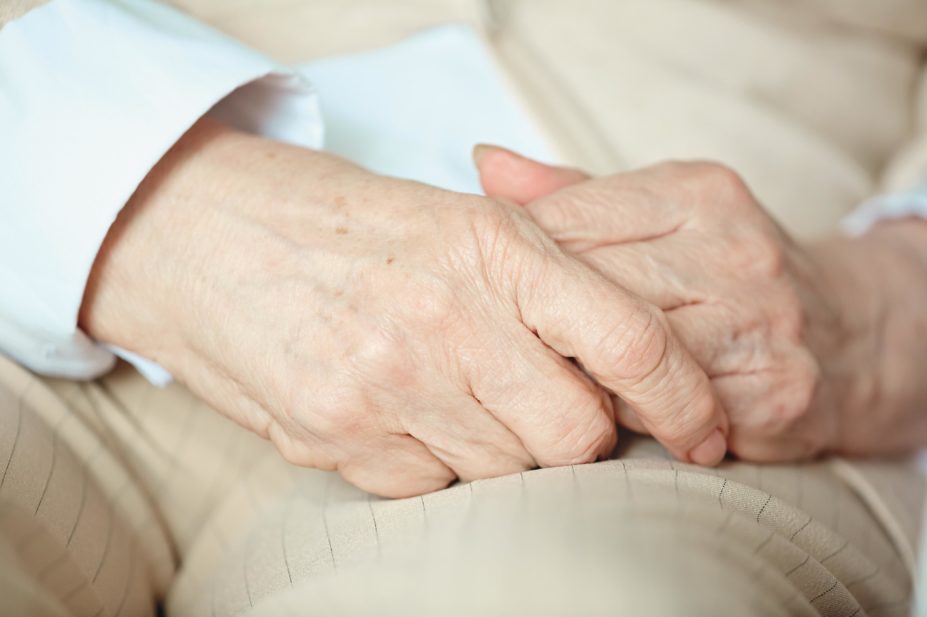
Shutterstock
High systolic blood pressure (SBP) is linked to poorer outcomes among patients with chronic kidney disease (CKD), but this association is weaker among older patients, a study shows, suggesting that older patients may benefit from slightly higher blood pressure targets.
“We found that SBP above 130–139mmHg was associated with higher risk of all outcomes, but the strength of the association was substantially weaker in older patients, especially those over 80 years of age,” says lead author Csaba Kovesdy from the University of Tennessee Health Science Center in Memphis.
“The ideal blood pressure range in elderly CKD patients also appears to be higher than in younger patients (SBP 130–150mmHg versus 120–140mmHg), supporting current treatment guidelines,” he adds.
The observational study used data from 339,887 patients with incident CKD to look at the relationship between SBP and mortality, incidence of coronary heart disease, ischaemic stroke and end-stage renal disease (ESRD). More than 90% of patients were receiving at least one antihypertensive drug. The results showed that SBP of 140mmHg or higher was associated with higher risk of these outcomes at all ages over a median follow-up period of 4–5 years, but the effect was less strong in older patients.
For example, in those aged 50–59 years SBP ≥170mmHg was associated with a doubling in the risk of mortality compared with SBP 130-139mmHg. But in patients aged 80 and over, SBP ≥170mmHg was associated with a 30% increase in the risk of mortality.
Similarly, in patients aged under the age of 80 years, there was a positive linear relationship between SBP and the risk of ESRD, but no such relationship was seen in older patients with SBP below 170mmHg.
The researchers, reporting their findings in the Clinical Journal of the American Society of Nephrology
[1]
(online, 21 April 2016), say that older patients may be more susceptible to the deleterious effects of low blood pressure, but this probably does not completely explain their findings.
“Older patients may also experience competing risks from non-hypertension related deaths (for example from cancers and infections), which would make the effect of BP therapy less accentuated,” Kovesdy suggests.
Will Herrington, honorary consultant nephrologist at the Oxford Kidney Unit, part of Oxford University Hospitals NHS Foundation Trust, who was not involved with the study, says it is not possible to distinguish cause from effect in the results. But he adds that the study has epidemiological value as one of the few to demonstrate a clear linear relationship between blood pressure and outcomes in patients with CKD. Some previous studies had suggested the relationship might have a U-shape in patients with CKD, Herrington says.
He also notes that, compared with younger patients, a weaker relationship between BP and cardiovascular events in older patients has been observed in earlier studies, but these did not specifically include patients with CKD.
The findings of the current study are consistent with National Institute for Health and Care Excellence guidelines, which recommend maintaining SBP below 140mmHg and diastolic BP below 90mmHg in patients with CKD.
Herrington says that large, randomised trials are required to determine the optimum blood pressure targets for patients with CKD in clinical practice.
“A reasonable design would be to replicate the SPRINT trial design in a large population of CKD patients, recruiting a broad range of patients,” he adds.
References
[1] Kovesdy C, Gosmanova E, Lu J et al. Age and outcomes associated with blood pressure in patients with incident CKD. Clinical Journal of the American Society of Nephrology 2016. doi: 10.2215/CJN.08660815.
You may also be interested in
The importance of diverse clinical imagery within health education

Government should consider ways to prevent ‘inappropriate overseas prescribing’ of hormone drugs, review recommends
